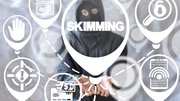News
Delayed decisions on Triple DES
Despite MasterCard's pending April 2005 deadline for Triple DES encryption on ATMs, manufacturers have not yet seen a major increase in orders. Various market forces, as well as doubt that the 2005 deadline will stand, are leading some financial institutions to delay decisions on whether to replace or upgrade.
April 3, 2003
While ATM vendors expect an eventual rush of business from bankers looking to update their networks in order to comply with requirements to run Triple DES (Data Encryption Standard), the key word seems to be "eventual."
Most financial institution ATM owners seem to be deviating only slightly from their normal replacement cycles, and upgrading machines as part of routine service/maintenance programs.
Jim Walker, senior vice president of ATM Banking for Pittsburgh-based PNC Bank, said that PNC has "a few handfuls" of ATMs ready to run Triple DES since PNC began installing machines capable of doing so last year. Any ATMs that are de-installed receive a compliant keypad before being re-deployed, he said, noting that he believes PNC will be able to update 600 to 1,000 of its 3,500 ATMs this way.
"We've obviously got a lot of machines to get to (Triple DES), but 2005 is a long way off," Walker said, adding that PNC will accelerate its conversion efforts in 2004.
Like PNC, Cleveland-based National City Bank is working with its three ATM vendors -- Diebold, Fujitsu and NCR -- and Concord EFS, which drives its 1,600 machines, to ensure that all new ATMs are Triple DES ready.
National City has slightly altered its regular replacement criteria, said Matthew Burns, National City's senior vice president of Retail Electronic Banking.. "We've used availability, not age, as our gold standard," Burns said, noting that in light of Triple DES requirements, seniority has become an increasingly important consideration.
No rush
While all of Woodforest Bank's new ATMs are Triple DES ready, the Texas institution hasn't yet begun a serious evaluation of its existing machines.
Jim Duke, a Woodforest senior vice president, believes that fewer than 30 of his 200 relatively new ATMs will require complete replacement. He will decide on upgrades, he said, when he gets more information from his vendors on costs and when he feels more confident of the timeframes for compliance.
"They just keep moving those dates," he said, noting that none of the EFT networks are requiring their members to meet MasterCard's requirement that all ATMs run Triple DES by April 1, 2005. "We don't want to spend the money if we don't have to. When they get a rock- solid date, we'll get serious about what we need to do."
PNC's Walker said his institution's goal is to meet the MasterCard mandate. "As far as we're concerned, (April 1, 2005) is the date and that's what we're shooting for," he said.
First served
ATM manufacturers warn that postponing decisions on upgrades may create unreasonable demands on the service organizations that perform conversions.
"When that supply-and-demand kicks in, those hourly rates are going to go up," said Phil Kasper, NCR's vice president of marketing for the Americas.
Like the lead-up to Y2K, "The longer people wait, the more likely they are to run into extended lead times (for service)," said Ray Stankunas, Diebold's director of sales development, Customer Business Solutions.
The ability of service organizations to handle a possible last-minute crush is a "fear factor," agreed National City's Burns. "There are only so many resources to go around."
However, Burns said he is trying to balance those concerns with the other issues driving his decisions. He cited the lack of a sign-off by the Department of Justice on requirements for audio-enabled ATMs, continuing evaluation of various methods of remote key management and the still-developing business case for advanced functionality ATMs with Microsoft Windows-based operating systems.
Woodforest's Duke said, "When it gets down to the wire and (vendors) want to take my money, they'll find a way to get it done."
Opportunity knocks
Financial institutions with older ATM networks, such as Chicago-based Harris Bank, see less reason to delay their Triple DES decisions.
The majority of Harris Bank's 255 ATMs are third-generation, STP-based machines, said Brenda Pino, vice president of Branch and ATM Distribution. "We already knew we were going to have to do something and do it soon, so I didn't blink an eye. I said, 'This is a great opportunity to get some new ATMs.'"
After replacing her STP-based models, Pino must decide whether to upgrade or replace the newer, BTP-based machines -- and assess how extensive upgrades will be. While each decision will be based upon a variety of factors, Pino believes it will make sense in many cases to opt for costlier, yet more comprehensive, makeovers.
"Why put money into a machine if you're not going to get a color screen, a faster processor and other features?" said Pino, who has an Excel spreadsheet for each ATM in her network.
Have I got a deal for you
Like vehicle trade-ins, there are few standard deals when it comes to manufacturers' trade-in programs for ATMs. According to NCR's Kasper, pre-packaged programs are more common for smaller community banks because they have less ongoing buying power than banks with bigger networks.
"It's a lot like cars. If you buy one every month, GM is probably going to treat you a little differently," Kasper said.
Kasper wouldn't comment on specific terms for trade-ins, but he said that NCR's typical offer for fourth-generation and above ATMs is "four digits and it's competitive." While older ATMs have little if any resale value, "that doesn't mean you'll get zero for it," he said.
NCR periodically changes its trade-in offers "to make it a little interesting," Kasper said, and will do so to encourage early action on Triple DES. "If you say the same thing two years in a row, (customers) tend to blank out a bit."
Diebold also has a trade-in program as well as an in-house ATM Remarketing department that can take older ATMs and either dispose of them in an environmentally safe manner or refurbish and resell them. Diebold generally absorbs the cost of de-installation and delivery to its refurb shop in North Canton, Ohio, which "can be very significant," said John Mulligan, manager of ATM Remarketing.
His staff has fielded more questions about trade-ins during the past three to five months, Mulligan said, although he gives it another six months before Triple DES concerns cause a significant uptick in business.
Extra, extra
Fujitsu, working with refurb shop Atlanta Computer Group, is offering to de-install competitors' existing drive-up island ATMs such as Diebold's 1074 and NCR's Personas 90 and replace them with its new 8031.
As an added incentive, for orders submitted in 2003, Fujitsu will apply 100 percent of the ATMs' resale value, rather than the standard smaller percentage, on the trade-in. For newer ATMs, said Kent Schrock, Fujitsu's director of marketing, customers "will get several thousand additional dollars."
Schrock believes that island drive-ups will be among the most commonly replaced units in the lead-up to Triple DES.
"They're often 12 to 14 years old and expensive to service," he said. "If customers have to go out and touch those (for Triple DES upgrades), they might as well replace them with a new unit that has a (Microsoft) Windows-based operating system, audio capability and other features."
Fujitsu plans to introduce a similar offer for through-the-wall units soon, Schrock said.
Interest in Triple DES was strong when MasterCard first issued its mandates in early 2001, waned somewhat in 2002 and is beginning to pick up again, Schrock said, noting that "there is a lot of fence sitting" among financial institutions.
While NCR is optimistic that Triple DES business will pick up in coming months, Kasper believes orders won't really begin to roll in until later. "This year won't be bad, 2004 will be pretty good, and 2005 will be really good," he predicted.
Included In This Story
Diebold Nixdorf
As a global technology leader and innovative services provider, Diebold Nixdorf delivers the solutions that enable financial institutions to improve efficiencies, protect assets and better serve consumers.
 ChatGPT
ChatGPT Grok
Grok Perplexity
Perplexity Claude
Claude












